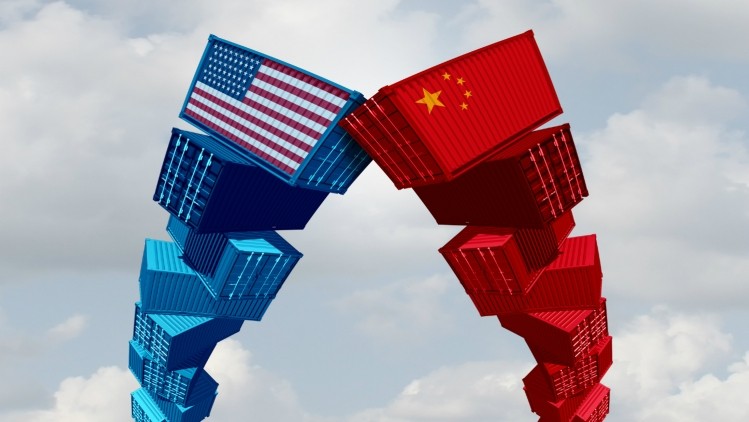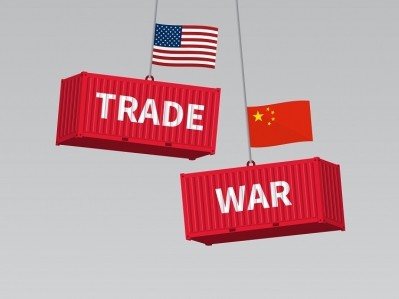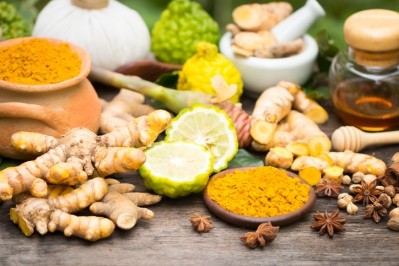Rosy picture for China botanical firms as US exports due to rise despite trade war

The association exported 5 billion yuan (about US$724 million) worth of goods last year, with the US being the largest export market, contributing to around half of the association’s revenue. Europe is the next biggest export market, followed by Japan and Korea.
The association aims to increase overseas export value by 20%, with the US as the main target.
“We are making this projection based on the growth seen in the previous years. We observed that there is a growth of 20% on average per year for the past 15 years, and we expect the figure to continue rising at this rate,” Hou said.
“This year will be better than last year.”
Despite the ongoing US-China trade war, trade with the US remains positive, he said.
He pointed out that the export value for his company Shaanxi Undersun Biomedtech for the first six months alone has surpassed the export value recorded last year.
“For my company, the overseas export value for the first six months of this year is already twice as much as the amount last year.”
International sales comprise one-third of his business, of which, 80% came from the US market. Some examples of popular plant extracts imported to the US include curcumin, rhodiola rosea, epimedium, anthocyanidins, organic fruits and vegetable powder.
Effects of trade war limited
Although the US-China trade war has intensified, the effects are less pronounced in the plant extract industry.
Hou explained that this is because the tax tariffs did not include plant extract ingredients. Hence, the association did not suffer from any direct effects.
Nonetheless, he has observed new challenges in terms of customs clearance.
For instance, the days needed to clear the custom has increased from three to seven days to an average of 15 days.
He elaborated that the US custom is more stringent in their checking procedures. There are more cases of confiscated or rejected goods due to packaging and barcode problems.
“Previously, the US customs officers will not open our packages. They only inspect the goods based on its exterior packaging, since opening the packages would expose our ingredients to bacteria. However, they are stricter with their inspection these days and will go ahead and open our packages. This is going to undermine the quality of our ingredients.”
Competition from India
Besides China, India is another main exporter of plant extracts. Hou noticed that with the onset of the US-China trade war, the China exporters also face fiercer competition from their India counterparts.
“Some of the US customers have already switched to buying from Indian suppliers. We are facing very stiff competition from the Indians these days.”
To remain competitive, Hou said that the Chinese exporters are ramping up on product quality, services, and publicity efforts.
In terms of services, the association has set up a warehouse which is 700 sq feet in Las Vegas last year. It also engaged third-party organisations to conduct checks on the quality of the products.
There are 228 types of ingredients in the warehouse, with trading volume hitting 75 million yuan (about US$10 million) since its inception.
"Our target (in setting up a warehouse) is to provide faster and more convenient services to our customer."
Hou also talked about the prevalence of food fraud in China, adding that the association is intending to build a industry standard.
“This is the reason why the association is planning to build an industry standard and combat the deep-rooted problem of food fraud in China.”
To eliminate bad apples, the association blacklists firms which received multiple complaints.
The association has blacklisted three firms that have received multiple customer complaints between the year 2016 and 2017.
Hou added that the association also urges members to compensate customers who have lodged complaints.
Increasing global presence
Formed in 2014, the association currently has 103 members.
There are more than 600 enterprises producing over 2000 types of plant extracts in Shaanxi alone and half of China’s plant extract business comes from Shaanxi alone.
To strengthen their international presence, the association and its members are planning to participate in more overseas exhibitions.
“We are increasing our presence in the global stage by participating in more overseas exhibitions. Last year, 36 of our members went to Supplyside West in Las Vegas and 26 went to Vitafoods in Switzerland.”
“We already have 35 members signing up to go for the Supplyside Las Vegas in November.”
The association will also organise annual commerce event, which is held in Los Angelos this year and in Italy last year. The event aims to introduce the association’s members and their products.



















